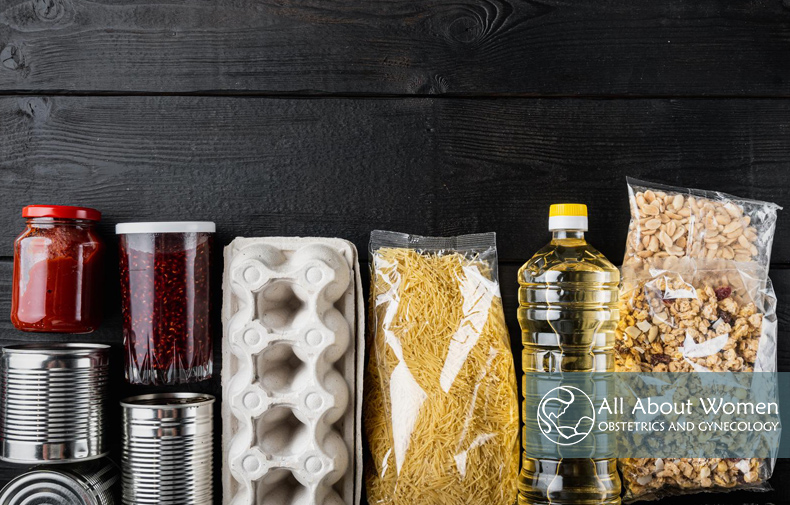
In light of the COVID-19 pandemic, there has been a significant rise in the number of people (particularly women) who are food insecure. According to an analysis released in March 2021 by Feeding America, an estimated 42 million people will likely be considered food insecure in 2021. In 2019, that number was just over 35 million.
Food insecurity doesn’t just affect people and families in poverty. In fact, during the pandemic, it’s proven to affect just about anyone. Just because you may not be without food all the time, it doesn’t necessarily mean you don’t experience some level of food insecurity.
What is food insecurity?
Food insecurity is defined as inconsistent eating patterns and food intake due to a lack of access (generally from a lack of money or other resources like food stamps). There are several different degrees of food insecurity.
Effects of food insecurity on women’s health
Women are at particularly high risk for experiencing the effects of food insecurity. There are a couple of reasons for this.
First, women who are mothers generally put their children first and take care of their own health and wellbeing last.
Second, not giving a woman adequate nutrition (along with the added stress of being food insecure) can lead to depression and other mental health issues.
Long-term stress can cause a long list of health problems, so it’s important to watch for these symptoms:
- Constant and persistent headaches
- Frequent stomach aches
- Low energy
- Depression/anxiety
- Forgetfulness
- Sleep problems
- High blood pressure
- Loss of appetite or an impulse to overeat
If you feel like you’re checking off a lot of these symptoms, talk to your doctor. It’s important to maintain your physical health, as well as your emotional and mental health.
Resources to help women who are struggling with food insecurity
At All About Women, we are here to help. Not only do we believe in regular well-woman check-ups for overall health, we also believe it’s important to eat good, nutritious food to aid in keeping you healthy.
If you and your family are struggling with food insecurity, here is a list of local resources to get you back to regular and adequate nutrition:
- You may qualify for a program through the USDA called the Supplemental Nutrition Assistance Program (SNAP). Information about how to apply and whether or not you may be eligible can be found on their website.
- Local food banks and soup kitchens can also be great places to seek out help. Here are some Gainesville organizations that provide free food to those who need it:
- Bread of the Mighty Address: 325 NW 10th Ave
Gainesville, FL 32601
Phone: (352) 336-6570
Website: breadofthemighty.org
Hours: M-F, 8:00 a.m. – 4:00 p.m. - Catholic Charities Gainesville Food PantryAddress: 1701 NE 9th Street
Gainesville, FL 32609
Phone: (352) 372-0294
Website: https://catholiccharitiesgainesville.org/
Hours: M-Th, 9:30 a.m. – 12:30 p.m. - Compassion Outreach Ministries Food PantryAddress: 320 SE 43rd Street
Gainesville, FL 32641
Phone: (888) 780-7729
Website: https://www.compassionateoutreach.org/ - Gainesville Community MinistryAddress: 238 SW 4th Ave
Gainesville, FL 32601
Phone: (352) 372-8162
Website: http://gcmhelp.org/home0.aspx
Hours: M-Th, 9:00 a.m. – 12:00 p.m.
- Salvation Army GainesvilleAddress: 639 E. University Avenue
Gainesville, FL 32602
Phone: (352) 376-1743
Website: https://salvationarmyflorida.org/gainesville/
Hours: M-Th, 9:00 a.m. – 12:00 p.m. - Francis HouseAddress: 413 S Main Street
Gainesville, FL 32601
Phone: (352) 378-9079
Website: https://stfrancishousegnv.com/
Hours: Daily, 9:00 a.m. – 12:00 p.m. - Showers of Blessing Harvest CenterAddress: 2615 SE 15th Street
Gainesville, FL 32641
Phone: (352) 375-3589
Website: https://www.showersofblessing.org/
Hours: Mondays, 9:00 a.m. – 11:00 a.m.


